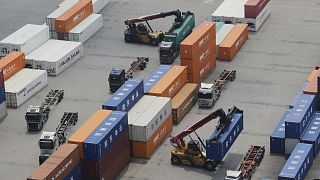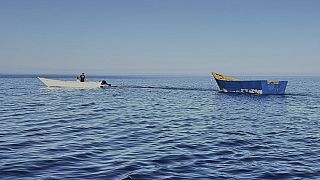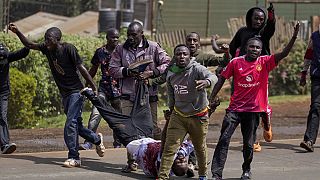Tunisia
Tunisians reacted on Tuesday after the country's president announced plans to draft a new electoral code and appoint a transitional leadership - and to hang on to the exceptional powers that he seized in July, throwing the country’s young democracy into question.
In a speech Monday night, President Kais Saied had promised that the new initiatives would respect Tunisians’ hard-fought rights and freedoms and democratic constitution.
Saied's actions have sidelined Tunisia's long-governing Islamist party, which accuses him of a coup, and worried Islamist groups around the region.
While many Tunisians welcome his moves, human rights groups and some others are concerned about the future of the only country to emerge from the turbulent Arab Spring uprisings with a new democratic system.
Political analyst Slaheddine Jourchi said that he believed the change would "reduce the role of political parties" and "rely on the election of individuals."
President Saied had announced his plans to supporters in the impoverished town of Sidi Bouzid, the birthplace of the Arab Spring, where many people are disillusioned with the country’s failure to solve economic and social problems since overthrowing its repressive leaders a decade ago.
He defended his July 25 decision to suspend parliament, fire the prime minister and seize executive powers, which he said was needed to save the country amid unrest over financial troubles and the government's handling of Tunisia’s coronavirus crisis.
He invoked a special constitutional article allowing such measures in the event of imminent danger to the nation, and said they would be in place for 30 days.
But they have been extended until further notice.
He promised a new electoral code to hold lawmakers more accountable to constituents, and transitional arrangements to run the country before he names a new prime minister.
He did not detail them.
The North African nation was widely seen as a model for budding democracies but has failed to cure chronic unemployment and other social ills, especially in neglected provinces.












00:50
Ons Jabeur retires from Wimbledon Opener due to breathing issues
01:09
Former Tunisian president Moncef Marzouki sentenced to 22 years in absentia
01:32
Land convoy leaves Tunisia for Gaza, in an effort to break Israel's siege
Go to video
Sliti proud to be back with Tunisian team but realistic about Africa Cup prospects
02:03
Libya hosts African volleyball championship
Go to video
Tunisia: new Human Rights Watch report finds dramatic increase in politically motivated arrests